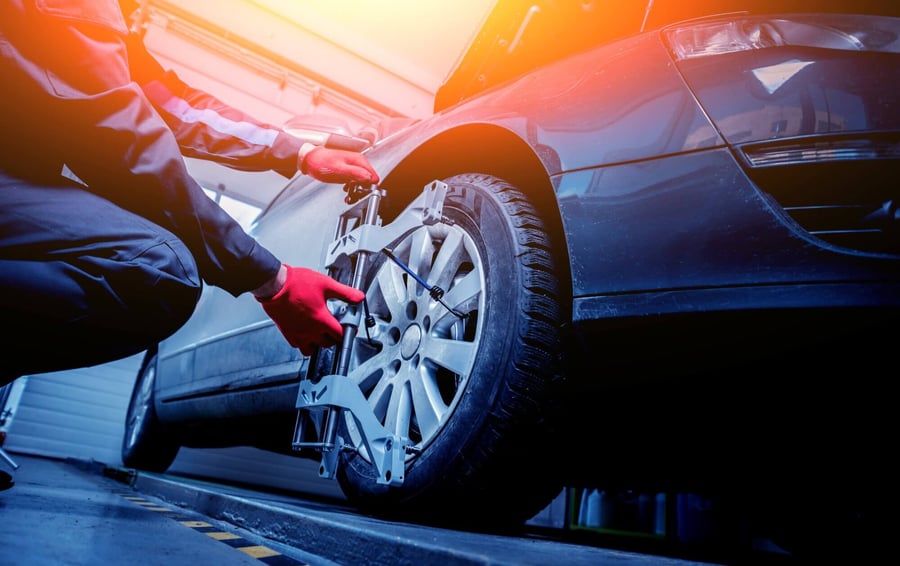
The most commonly used car wheel size is 15 inches, and that’s on the smaller side of the spectrum. Bigger wheels are more expensive, but they can make cars look aggressive, sporty and cool.
Are bigger wheels worth the extra cost? Keep reading for benefits and drawbacks of big wheels vs small wheels.
Are Bigger Wheels Better?
To some, bigger is always better. But is that really the case with car wheels? It can be. Bigger wheels require a smaller sidewall height, which can lead to improved handling and a sharper ride.
For those who don’t know, a wheel’s sidewall is the bit between the inside and outside diameter of the tire. The smaller the sidewall, the more room there is for a bigger wheel.
When increasing wheel size, it’s important to make sure you get tires that fit the increased wheel diameter. This might seem obvious, but it’s surprising how many people increase their wheel diameter without getting the tires to match.
As mentioned earlier, bigger tires require a lower sidewall height. This compensates for the suspension’s clearance when going over bumps. And the bigger the wheel, the higher the resistance.
Higher resistance means it requires more energy to move. Increased energy output means burning more fuel. That, coupled with bigger wheels being heavier, leads to much higher consumption.
In addition to looking cool, bigger wheels do have some other benefits. Due to a smaller sidewall, the tire touching the road is wider. This offers more stability, better handling and in some cases, faster braking.
Does Car Wheel Size Matter?
Though bigger wheels may look cooler and provide better handling, it all comes down to your preference. Most cars come with factory standard 15-inch wheels, and it gets expensive to upgrade.
If you do buy a car with an option package including bigger wheels, keep in mind that while the initial cost may be included in the purchase price, replacing and repairing those bigger tires will be a substantial future cost.
Some tests have shown that smaller wheels handle easier and more predictably in wet conditions, where bigger wheels give a sharper ride in drier conditions.
There’s no arguing that smaller wheels are cheaper. And because smaller tires have a bigger sidewall, they provide less resistance. Less resistance means lower fuel consumption.
So, smaller wheels are cheaper to buy and replace and are also better on fuel. They’re also quieter and smoother, making for a more comfortable ride.
Whether your car wheels are big or small, the most important thing is to make sure you replace your tires when they need replacing. Bald, worn down tires have no grip and are extremely dangerous.
The Takeaway
Those who care about performance and looks, bigger wheels might be worth the investment. For those who don’t care much about performance, there’s no need to spend extra money on bigger tires.
So, does car wheel size matter? It depends on what you want out of your ride. If the most important thing to you is your vehicle’s performance – go nuts. If you prefer a more fuel-efficient, smoother option – stay small.
Check out our blog for more information and resources on how to pick the best tires for different car makes and models.
